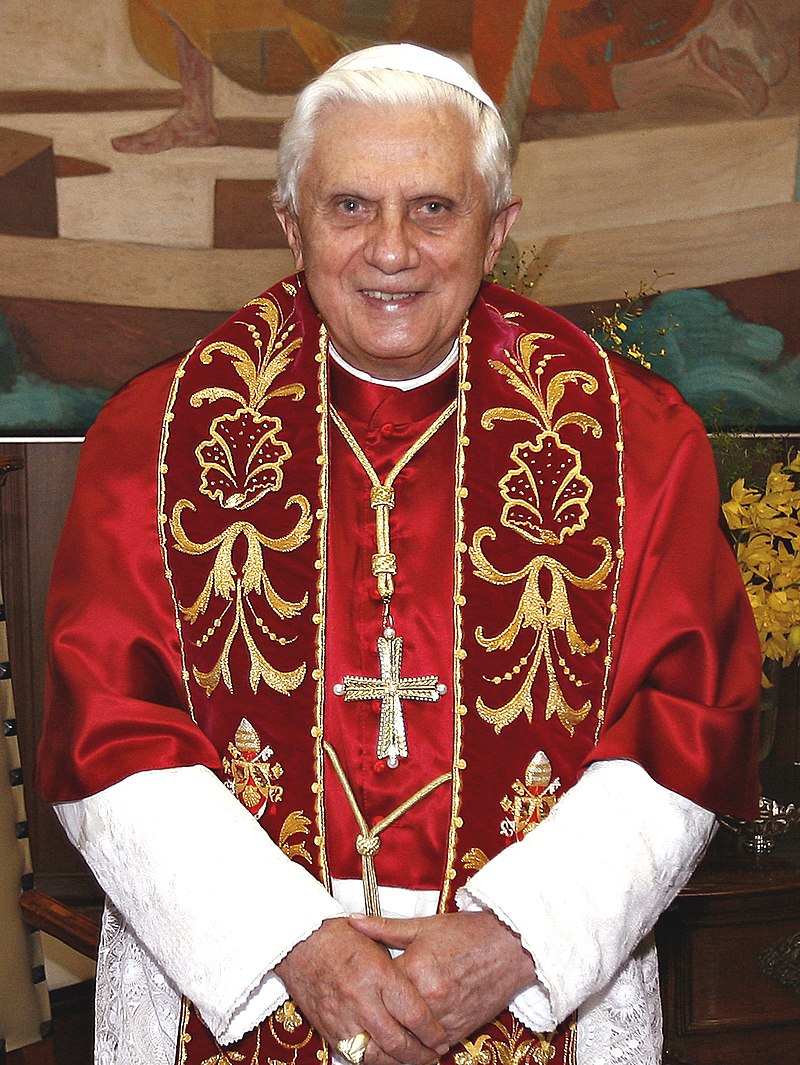
Pope Benedict died on New Year’s Eve at 9.34am. 95 years old, virtually his whole life was dedicated to God. Joseph Ratzinger entered the ‘minor seminary’ when he was 12 and from then was linked in some way with God through seminary, parish as a young priest, university as a lecturer and professor of theology, in diocese as a bishop and in Rome as defender of the faith in his position in the Congregation for the Doctrine of the Faith coming to its climax in his time as Bishop of Rome, Successor of Peter, Pope Benedict XVI, through his abdication because he felt that he did not have the health and strength necessary to continue in the role and needed to pass it to someone who had. In his first encyclical, ‘Deus Caritas Est’, he gives us an insight into the basis of his own faith throughout his long life in the first paragraph, the Introduction to the Encyclical. It goes as follows:
“God is love, and he who abides in love abides in God, and God abides in him” (1 Jn 4:16). These words from the First Letter of John express with remarkable clarity the heart of the Christian faith: the Christian image of God and the resulting image of mankind and its destiny. In the same verse, Saint John also offers a kind of summary of the Christian life: “We have come to know and to believe in the love God has for us”.
We have come to believe in God’s love: in these words the Christian can express the fundamental decision of his life. Being Christian is not the result of an ethical choice or a lofty idea, but the encounter with an event, a person, which gives life a new horizon and a decisive direction. Saint John’s Gospel describes that event in these words: “God so loved the world that he gave his only Son, that whoever believes in him should … have eternal life” (3:16). In acknowledging the centrality of love, Christian faith has retained the core of Israel’s faith, while at the same time giving it new depth and breadth. The pious Jew prayed daily the words of the Book of Deuteronomy which expressed the heart of his existence: “Hear, O Israel: the Lord our God is one Lord, and you shall love the Lord your God with all your heart, and with all your soul and with all your might” (6:4-5). Jesus united into a single precept this commandment of love for God and the commandment of love for neighbour found in the Book of Leviticus: “You shall love your neighbour as yourself” (19:18; cf. Mk 12:29-31). Since God has first loved us (cf. 1 Jn 4:10), love is now no longer a mere “command”; it is the response to the gift of love with which God draws near to us.
In a world where the name of God is sometimes associated with vengeance or even a duty of hatred and violence, this message is both timely and significant. For this reason, I wish in my first Encyclical to speak of the love which God lavishes upon us and which we in turn must share with others. That, in essence, is what the two main parts of this Letter are about, and they are profoundly interconnected. The first part is more speculative, since I wanted here—at the beginning of my Pontificate—to clarify some essential facts concerning the love which God mysteriously and gratuitously offers to man, together with the intrinsic link between that Love and the reality of human love. The second part is more concrete, since it treats the ecclesial exercise of the commandment of love of neighbour. The argument has vast implications, but a lengthy treatment would go beyond the scope of the present Encyclical. I wish to emphasize some basic elements, so as to call forth in the world renewed energy and commitment in the human response to God’s love.”
The line that I (Fr. John) would take from this as central, is the one I have underlined. For Pope Benedict our encounter with the person of Jesus Christ is fundamental.
